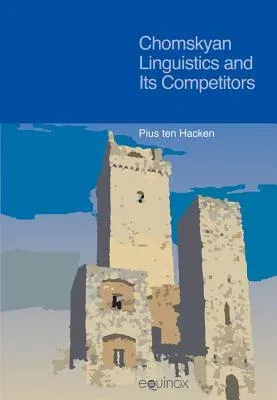Noam Chomsky is not only one of the most influential, but also one of
the most controversial figures in 20th century linguistics. In view of
the polarization of opinions on Chomsky, giving a balanced account of
Chomskyan linguistics is an ambitious venture. The approach chosen here
is to describe both Chomskyan linguistics and the positions defended by
its opponents in terms of research programmes. A research programme
consists of a number of assumptions on what language is and how it
should be studied. Only by assuming that research programmes adopted by
a large number of scholars for a prolonged period have to be rational,
coherent systems can we hope to fully understand the nature of the
conflicts between them.
After a general discussion of the notion of research programme, it is
shown how the various stages of Chomskyan theory can be analysed as
belonging to a single, coherent research programme. This research
programme is then compared to the ones for Post-Bloomfieldian
linguistics, Lexical-Functional Grammar, Generalized Phrase Structure
Grammar and Montague Grammar, and Head-Driven Phrase Structure Grammar.
Finally the relevance of the research programme of Chomskyan linguistics
for the practical study of the acquisition, change, and use of language
is addressed.

